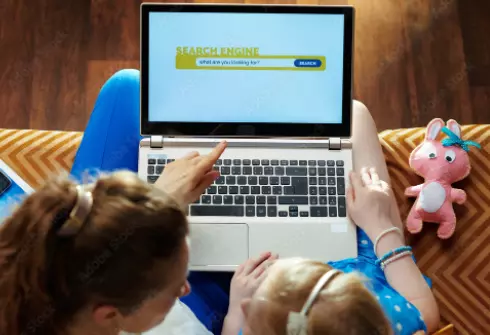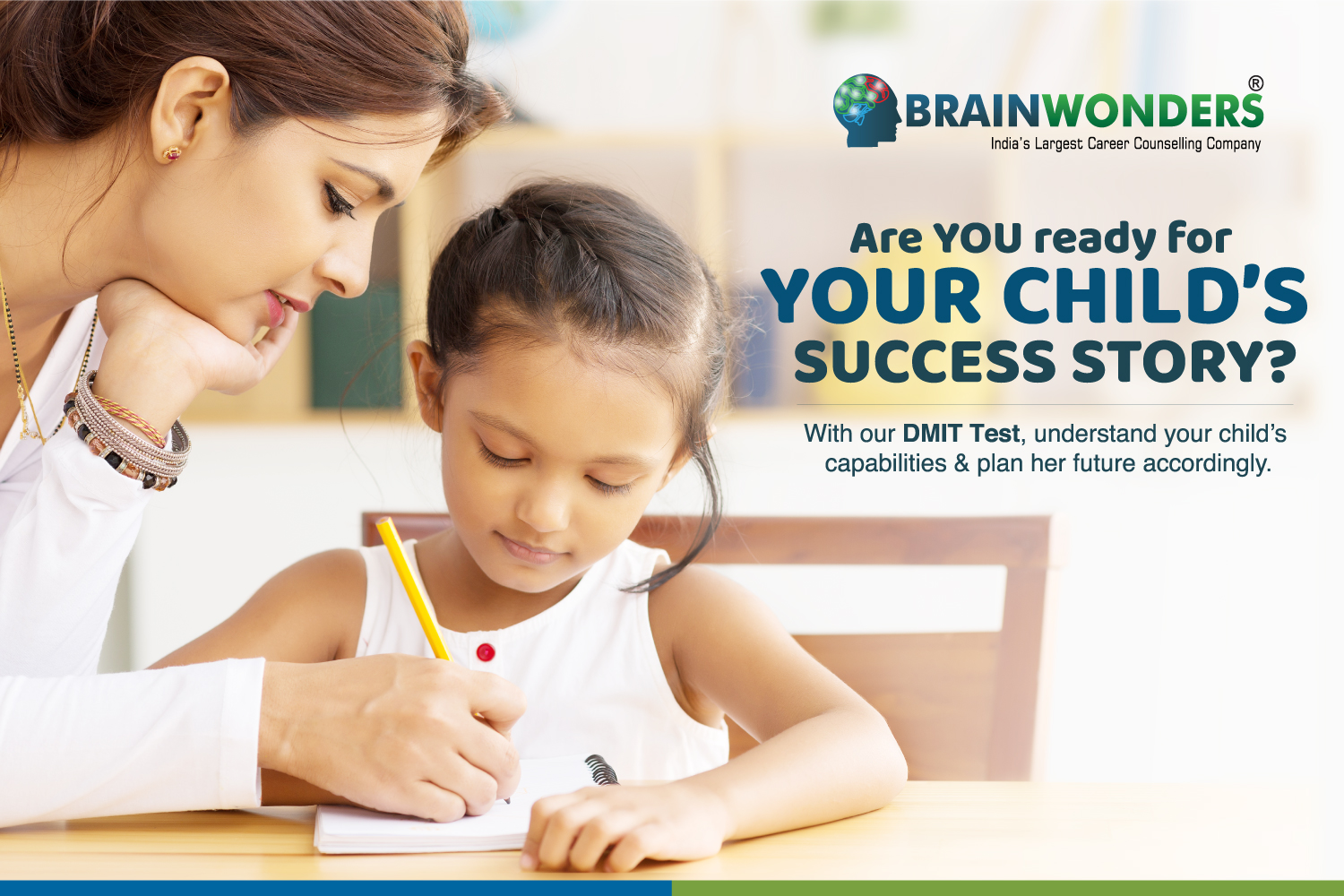

We have a database of over 11,000 colleges all over India.
Connect with us to find your perfect fit!
Blog
06 September,2021 | By Brainwonders

Is virtual learning becoming a norm of the post COVID era? The aftermath of the pandemic has brought unavoidable disruption in people's lives, and the concern for a normal life is still in question.
This change has been difficult for both college students and the kids in their school-going schedule. Meanwhile, there have been huge changes in the style and mode of learning in schools. Adapting to these changes has been difficult for students and their parents equally. This blog is devoted to assisting them with their predicament.

According to various studies, when it comes to virtual learning parents are supposed to take up the role of a teacher. Many children consider online learning to be a vacation.
So, how can parents help their children get familiar with virtual learning as a new approach and not as a vacation? Also, what are the strategies that can assist them in improving virtual learning for their children?
In this article, we have compiled a list of eight recommendations to assist parents in helping their children develop their virtual learning skills. Continue reading to learn more about these tips.

Research says that your learning environment has a direct impact on your productivity. Studying while relaxing on a bed might be detrimental to one's productivity. So, you must select a desk and sit up straight to have your thoughts aligned. Children gain confidence and a sense of security when they have a study environment at home.
Moreover, sitting on a chair with your backs straight and your work related material on a desk creates a huge difference in your learning outcome. If that isn't possible, leaning on a chair against a flat elevated surface or a platform can help you create a similar environment.
It is important to provide a well-lit workspace because you do not want your children to strain their eyes. Choose a place adjacent to the window with plenty of airflow. Encourage your children to hang artworks or personalize their study place to give it a sense of belongingness.

Children who stick to a timetable are less likely to ignore their virtual learning sessions. It is advisable to wake up on time, have a healthy meal, and dress accordingly. Moreover, keeping the desk tidy allows the youngster to work effectively. It also enhances their decision-making skills and instills a sense of responsibility in them.
Being disorganized, on the other hand, limits their productivity. It makes them uneasy, and can even have a negative impact on their general health.
For instance: A child who has organized his notes from the beginning will be easily able to ace his exams than someone who studies at the end. Prioritize your work and set attainable short-term goals. It will make your life much easier and will significantly improve your academic score.
Likewise, to inculcate discipline it is very important to encourage the child to do their own household work. Train the youngster to do basic household chores.
For instance: Doing their basic laundry, collecting their own plates after eating, etc. It can help them maintain discipline in their life and will prepare them for other challenges.

Humans, on the whole, are wary of uncharted territory. New settings can make people feel uneasy, especially children. Professor Wahman claims that lack of predictability is typical to the emotions that sabotage learning. This is why improving predictability can help a lot of children in their studies.
For this purpose, describe them the virtual learning process and the reasons behind this type of learning. Assist them in their projects, assignments or presentations, as for some of them it might be their first time.
Making minimal efforts to improve their technical expertise will benefit them in the long run. Learn about the platforms and software that your children use. When your children are using the screen, co-engage with them to foster connection and learning together. Interact with them instead of just watching them on the internet so you know what they are up to. Explore with them new aspects, new tools, and new settings of various programs to increase engagement.

There are times when children have difficulty understanding their lessons. Rote learning is harmful and obsolete since it leaves a youngster in a confused state of mind. Attempt to instill a greater comprehension of concepts in children's minds. Sharing relatable examples or personal experiences with them is the simplest method to go about it.
Help them make connections between textual concepts and hands-on experiences. It will help them gain a better understanding and will motivate them to learn more. Children can use concept mapping to assess if they are aware of what they are learning.
Simultaneously, urge students to explore for ways wherein academic content resonates with their styles of learning in order to develop their whole personalities.

Building relationships is crucial in ways we don't even realize. Children learn how to develop relationships from their parents. Their bond with their parents is the foundation of their overall social behavior. Other than that, children also grow and develop social connections through their environment.
When a student sees a friend toppling over a football in the playground, he rushes over with a first aid kit and a bottle of water. He acts in the same way that he has seen his mother care for him. This youngster is learning to empathize with, or comprehend the feelings and experiences of others.
Researchers have discovered that supportive relationships have an impact on a child's academic performance. A secure relationship promotes social, emotional, cognitive, and motivational growth. Yelling at them can be just as dangerous as hurting them.
Try to keep things light and lighthearted as much as possible. Instead of letting them sit in their room and watch TV, ask them to organize virtual meet-ups with their pals.

Children have the tendency to ask the most bizarre, yet fascinating questions. To improve their understanding, answer them simply and clearly. That way they will be more inclined to get involved in learning.
Curiosity helps the brain prepare for learning and also improves concentration. This is why most speakers begin with a question, which serves as a hook to keep you interested. The key is to keep the hook in place.
When children are curious, their brains transform into a fast-working, knowledge-gathering machine, retaining information that otherwise may or may not be of interest to them.
Asking them questions about any topic or course will encourage students to read more, to discuss with their teachers, and eventually learn through it. Allowing the children to express their doubts without any fear or shame will develop a sense of security and confidence in them.
Parents often highlight the weaknesses of their kids. However, doing so may result in their confidence and them losing interest in virtual learning. Pulling up their areas of weakness in certain subjects may cause them to withdraw interest from it.
So, focus on their strengths. It will lead to a sense of fulfilment in them. It can also increase their involvement in the school activities, and will improve their academic performance. Consider what your youngster enjoys doing the most and try to appreciate their strengths as well.
The first step in implementing a strengths-based approach is to assist children in identifying their own strengths. Talk to their teachers about their qualities and their interests. Request teachers to encourage the students in choosing projects or assignments based on their strengths.
If it appears realistic, provide them with the tools on the basis of their needs than their enjoyment. If not, simply expose them to some basic level online courses that will provide them with further understanding of their topic of interest.
The pandemic's advent threw everything into disarray, including schools and education. According to UNESCO, approximately 1.6 billion students in 190 countries have been affected so far, accounting for 90 percent of the world's school-aged youngsters. The stress of being quarantined has had a significant impact on their social, emotional, and cognitive development.
All of these factors point to the idea that parents must foster a healthy atmosphere and a growth mentality in their children.
You may also explore the internet such as seeking career counselling online, which will help your child identify their areas of interest at a young age. As a result, kids will be able to cultivate a passion for virtual learning.
Fill the form to know how!

